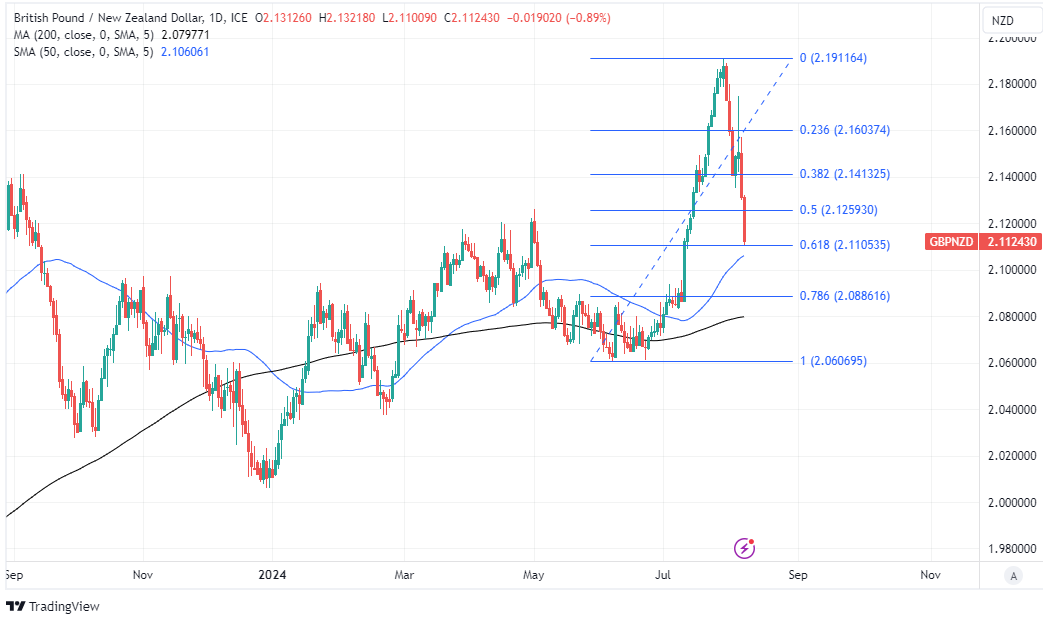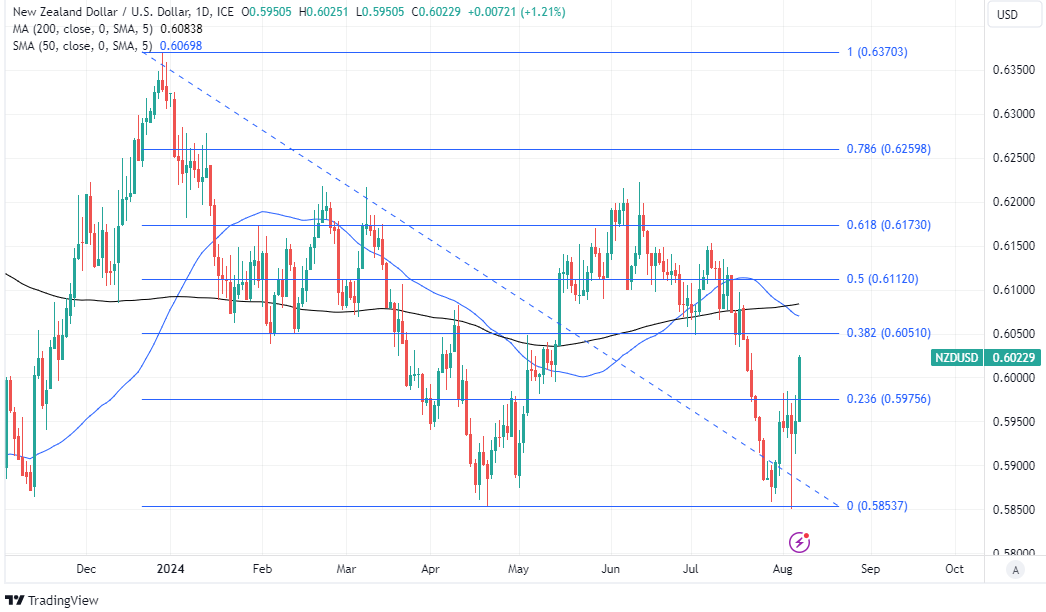New Zealand Dollar Drives GBP/NZD Back to Key Support on Charts

Image credit: Lux Tonnerre. Sourced: Flickr. Licensing conditions: CC 2.0.
The New Zealand dollar rallied strongly on Wednesday, driving GBP/NZD back to one-month lows and some key support levels on the charts, following a better-than-expected second quarter labour market report.
A second quarter pickup in employment and smaller-than-expected rise in the jobless rate undermined what was a 50/50 probability of an August interest rate cut from the Reserve Bank of New Zealand.
“Today’s data certainly show that spare economic capacity is building, and that disinflationary progress is set to continue,” ANZ Research economists said in response to the data. “However, we don’t think there’s enough here to bring OCR cuts forward to as early as next week.
Employment grew 0.4% in the second quarter when it had been expected to fall, while the jobless rate rose to 4.6%, stopping short of the 4.7% anticipated by the consensus among economists.
Above: Pound to New Zealand dollar rate shown at daily intervals with selected moving averages and Fibonacci retracements of July rally indicating possible areas of technical support for sterling.
NZD/USD rallied following the report, aided by a softening US dollar, while GBP/NZD fell by around half a percent as the market-implied probability of an August rate cut from the RBNZ fell on Wednesday.
The decline has seen GBP/NZD test support coming from the 61.8% Fibonacci retracement of its July rally around 2.1105 and left it at risk of a break lower to the 50-day moving average at 2.1060.
However, those levels are likely to offer solid support to Sterling, which could recover some of its recent losses if some economists are right that the RBNZ might still cut its cash rate at next week’s meeting.
“We are in the minority of forecasters who expect the Reserve Bank of New Zealand to hand down a 25bp rate cut at its meeting next week,” Capital Economics economists said in a Wednesday note to clients.
Above: NZD/USD shown at daily intervals with selected moving averages and Fibonacci retracements of second quarter decline indicating possible areas of technical resistance for the Kiwi.
“Moreover, with excess capacity in the economy rising rapidly, we think the Bank will embark on a more aggressive easing cycle than most are predicting,” Capital Economics economists also said.
Economists widely expect the RBNZ to leave its interest rate unchanged at 5.5% next Wednesday but financial markets have assigned some probability to the prospect of a cut since the bank’s July policy statement.
The Reserve Bank of New Zealand said in July that the restrictiveness of its monetary policy would be “tempered over time consistent with the expected decline in inflation pressures.”
Inflation has surprised on the downside of expectations since then after falling to 3.3% year-on-year in the second quarter, down from 4% and below the 3.5% expected by the consensus.


